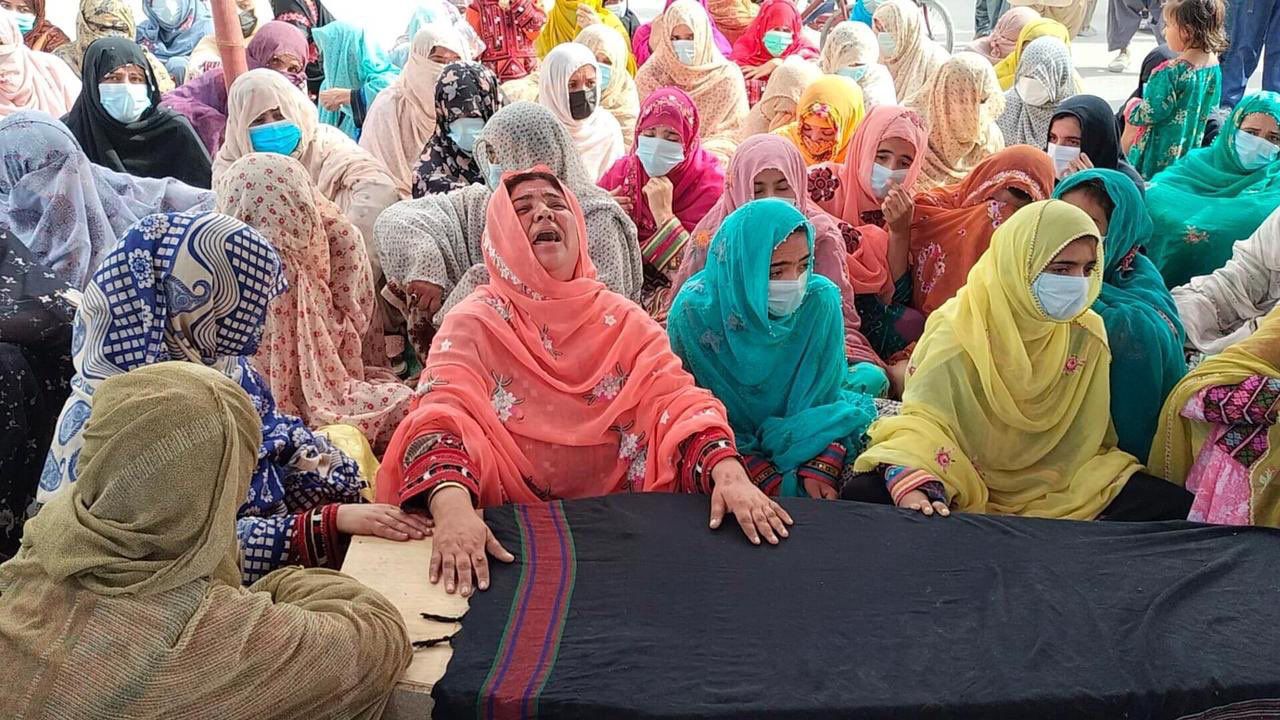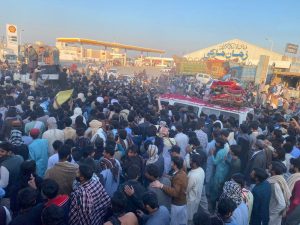As the year 2023 draws to a close, it will be remembered as a year of resistance by women in the region – Afghanistan, Pakistan’s restive southwestern Balochistan province, and Iran – where women in large numbers have risen up to fight inequality, repression, and oppression.
The people of Afghanistan, Balochistan, and Iran have embarked on extraordinary efforts throughout 2023 by standing up against authoritarianism, tyranny, and Mullahism (governance or rule by mullahs or religious clerics). Afghan, Baloch, and Iranian women have been at the heart of a resistance in 2023, playing a central role in the collective push for change. That is because women have borne the brunt of authoritarianism and Mullahism in this region.
The Taliban have halted girls’ education beyond the sixth grade in Afghanistan, citing non-compliance with their interpretation of Islamic law or Shariah. In Iran, the notorious morality police have returned to the streets, enforcing a dress code that mandates women to cover their hair and wear the hijab. However, women in Afghanistan and Iran are defiant and fighting hard to reclaim the freedom that has been crushed.
Baloch women are doing the same, although they have yet to gain global attention for standing up against massive rights abuses in Balochistan.
In Balochistan, hundreds of women whose husbands, brothers, and sons have disappeared have taken to the streets since November 23, marching 1,600 kilometers from the southern Kech district near the Iranian border to Islamabad, the capital of Pakistan. They have clear demands: an end to enforced disappearances and extrajudicial killings, and accountability of those involved in extrajudicial killings of Baloch youth.
The restive Balochistan region is no stranger to protests, sit-ins, and large-scale demonstrations, but what makes the current protest demonstrations unique is the large number of young women who are participating in and leading the demonstrations to Islamabad. This development is unprecedented in a region that is mainly conservative and tribal.
The current movement began following the killing of a 24-year-old youth in Turbat Tehsil, the headquarters of Kech district, a region marred by militancy. The victim, identified as Balaach, was reportedly whisked away from his home by counterterrorism police on October 29. After nearly three weeks, he was presented before an anti-terrorism court on November 22, which granted an additional 10 days of remand for further investigation.
Shockingly, between the night of November 22 and 23, he was shot dead during what the counterterrorism police described as an intelligence-based operation. This incident sparked widespread anger, leading to a week-long protest in Turbat, where the deceased’s family and a massive crowd placed his body on the road and protested.

Mourners gather around the coffin of Balaach. Image courtesy of Baloch Yekjehti Committee (BYC).
He was buried seven days after being killed, with thousands in attendance. Never before in the history of Turbat had such a funeral been held for a lower-middle-class youth.
Afterward, the protesters marched to Quetta, the provincial capital, as a convoy, traversing several Baloch areas and attracting large crowds wherever they stopped. Unprecedented scenes unfolded in various districts of Balochistan, with thousands of people turning out to receive the marchers from Turbat. The convoy has now reached Dera Ghazi Khan, the southernmost district of Punjab in Pakistan, home to a considerable population of ethnic Balochs. Baloch nationalists have consistently claimed it as part of Balochistan.
Dera Ghazi Khan, though a Baloch-dominated region, has been largely unaffected by the uprising in Balochistan. However, the current movement has drawn widespread attention in the district, with the marchers receiving a warm welcome and solidarity in Dera Ghazi Khan. This movement has not only united the Baloch population from the coastal area of Makran near Iran to Dera Ghazi Khan in Punjab but has raised widespread awareness about enforced disappearances, extrajudicial killings, and illegal detentions of youth in Balochistan. It has gained solidarity too.
The collective anger from Makran to Dera Ghazi Khan among ethnic Balochs represents frustration, mistrust, and resentment against the Pakistani state’s security-centric policies. For two decades, the central government has primarily used force to address the unrest in Balochistan.
The current women-led uprising in Balochistan has proven to be an effective strategy in confronting authoritarian power and exposing atrocities occurring in the province. The movement, characterized by its nonviolent nature, aims to bring an end to enforced disappearances in Balochistan. The procession keeps moving slowly toward Islamabad despite the state using resources and energy to contain it – registering fake cases, using force, blocking roads, and even disappearing organizers in some places.
Domestic media, under pressure, has imposed a complete blackout of coverage of the march. Nevertheless, this nonviolent movement has still attracted attention.
In the meantime, this has caused deep concern for both provincial and federal governments. A well-informed journalist aware of the affairs of the Interior Ministry informed me on Monday that the ministry is exploring various options to prevent such marches in the future if they cannot contain the current one due to social media pressure. I was also informed that the government had sought a detailed report from the Intelligence Bureau regarding the financial affairs of one of the main groups involved in the march. The Interior Ministry has already conducted thorough groundwork for a crackdown by collecting harsh slogans and rhetorical speeches. Various options, including declaring the movement outlawed, are being considered.
But mass arrests will not mitigate the anger or change Balochistan’s situation. These marchers are simply asking for security and assurance for their family members. A significant number of poor and lower-middle-class resilient young women participating in the demonstrations identify themselves as half-widows or orphans. They are deeply affected by enforced disappearances. The issue of custodial killings, or the so-called encounters labelled as “fake” by Baloch rights groups, adds more to their suffering.
People who are not allowed to protest peacefully will inevitably seek alternative means. The state must refrain from pushing them to the walls. Instead, the state has a responsibility to address the issue of missing persons in Balochistan.
Baloch rights groups estimate that more than 5,000 people have been forcefully disappeared, with over a thousand killed and their bodies dumped in the two-decade-long conflict. In 2018, Akhtar Mengal, leader of the ethno-Baloch nationalist party, Balochistan National Party (BNP Mengal), presented a list of 5,000 alleged victims of enforced disappearances to former Prime Minister Imran Khan’s government. The Khan government failed to recover those who had disappeared or to halt the practice of enforced disappearances. Instead, the issue escalated, with more youngsters going missing, only to be later found dead or killed in so-called encounters.
Since a caretaker setup was formed in August to ensure fair and free votes, Baloch rights activists claim there has been a dramatic surge in enforced disappearances followed by fake police encounters. The caretaker prime minister, Anawaar-ul-Haq Kakar, has constantly downplayed the issue of missing persons. He denies state involvement. In an interview in November on the country’s private broadcaster Geo News, Kakar said, “The state has no hand in these disappearances.”
Despite these assertions, Baloch rights activists keep blaming the state and are now marching into Islamabad in large numbers to exert pressure to put an end to this practice.
Whether they can successfully compel the state to end forced disappearances and other abuses in Balochistan remains to be seen. The state’s response to these peaceful marchers is already apparent through media talks from the interior minister and the Balochistan provincial caretaker government spokesperson.
Regardless of what unfolds next, the Baloch women have already made history with their unprecedented 1,600 km march. Baloch women are standing for something that dictators, authoritarians, and Mullahs fear the most – because when women are at the forefront of a movement, history has shown that they ultimately prevail.

































